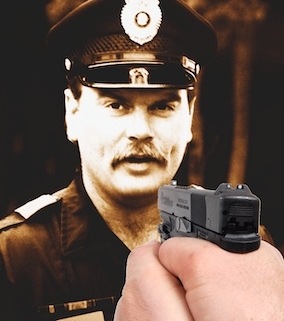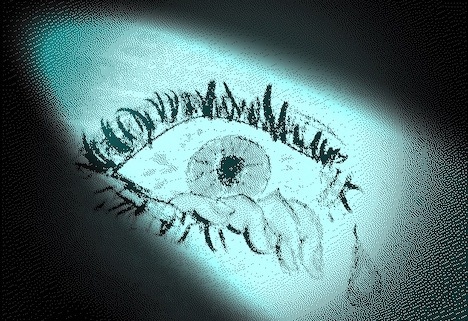Each year, somewhere between 40,000 and 50,000 people commit suicide in the United States. They take their own lives, leaving behind an average of six or more suicide survivors, the friends and family who deeply cared for the deceased person. And it is that half-dozen people who are left to deal with the aftermath and the very real emotional struggle to understand why their loved one chose to end it all.
Additionally, there’s another group of individuals who are unfortunately forced into the survivor category, the police officers who’re chosen as the weapon of choice for the person who elects to die in the manner known as suicide-by-cop. They, the officers involved, have their own special process of grieving with which to contend.
Shame and Guilt
In cases of suicide where a person takes their own life, the hours, days, weeks, and even years after are often filled with emotions that include shame and guilt. Shame, perhaps, because the survivors’ religions or personal beliefs view the act of suicide as a sin. Guilt, because the survivor may think they could have done something to prevent the death. There are other reasons, of course.
Outsiders may shy away from family members of the suicidal person because they simply don’t know what to say or do. Doing so adds to the sometimes self-isolation and feelings of abandonment experienced by survivors.
Then, adding to the trauma, come the police who enter the scene because the death must be investigated. It’s a necessary evil, one that unfortunately causes the family to relive the entire event. It’s an unpleasant and uncomfortable situation for the investigating officers, and a traumatic one for the survivors. Not to mention that survivors sometimes blame the police for the death, placing the fault squarely on their shoulders.
Why Do They Do It?
Some individuals who’ve made the choice to use a cop to do “the deed” for them are often attempting to avoid the issue of committing suicide, the act of taking one’s own life. Since suicide is often thought of as taboo, having someone else do it for you releases them (in their minds) of the stigma of suicide.
Sometimes a person sees suicide-by-cop as a fitting punishment for a sin. Others, well, they simply didn’t have the nerve to jump from a tall building or to use a gun to violently end it all. So they choose armed police officers to do it for them.
Mentally ill patients sometimes see the officer as a stand-in for a parent or other family member they absolutely despise. Therefore, they act out, using the officer as a means to thumb their nose at people in charge by forcing the authorities (the officers) to cause the destruction of the suicidal person. Sort of an “I win because I made you kill me,” scenario.
How Does Suicide-by-Cop Affect Police Officers?
Police officers who encounter individuals who’ve made the choice to use a cop to do “the deed” for them are often psychologically scarred and become depressed, and even angry that they were used as tools to kill another human.
Officers can develop various stages of PTSD, from mild to severe, and may forever second-guess the action(s) they took “that day,” contemplating the “what-ifs” on a never-ending loop that replays inside their minds day after day after day.
Officers who’re involved in suicide-by-cop situations may develop severe insomnia, irritability, and anxiety. They experience nightmares centered around the event. Flashbacks often occur, taking the officer back to the moment when the event took place.
Officers often feel an overwhelming sense of guilt after a suicide-by-cop incident. Reinforcing the guilt is that family and friends of the deceased often blame the police for the death, placing the fault squarely on their shoulders.
Shattered Lives
Officers may become absolutely broken over the incident. Their lives are shattered and they don’t know how to cope with changing from a strong and emotionally sound person to someone who can’t cope with day-to-day life. Even things as simple as going outside for a breath of fresh air can become a terrifying act.
Each officer reacts differently to suicide-by-cop situations. Like snowflakes, no two are alike.
To add to the officer’s troubles, while dealing with the psychological issues along comes a police shooting review board/team who question the officers every movement and action. They interrogate the officer in an attempt to make certain he/she followed the book, or not. The officer is investigated by strangers from outside agencies. They’re placed in the same “hot seat” where they’ve seated numerous criminals over the years.
The officers are most likely suspended from duty pending the outcome of the investigations. They’re stripped of their badges and guns. Civil suits pop up, filed by the attorneys representing the family of the deceased person. The public and press quite often side with the victim and place blame on the officer.
If the suicidal person was of a different race than that of the officer, accusations of racism often appear in the media as well as in the form of protests and marches. These actions compound the officer’s feelings of guilt which, in turn, sends depression and anxiety spiraling out of control. They’re hit from all sides with negativity.
The walls around them seem as if they’re closing in. Startle responses become hypersensitive. Paranoia sets in as the officer senses a lack of support from his department and from the general public.
Fear, anxiety, depression, and anger
Some fellow officers give the impression that the officer involved in the shooting is weak and should’ve been able to take the killing of another human in stride. However, this only serves to increase the officer’s feelings of doubt and depression.
Family life for the officers can quickly begin to crumble due to symptoms of PTSD—the flashbacks, irritability, the “I can’t concentrate and can’t seem to do anything right” syndrome. They give up and shut down, basically leaving only two options—seek professional help, or not.
Those who do not elect to accept counseling and other professional services often self-medicate by turning to alcohol and illegal drug use as an attempt to make their problems go away.
Even those who do turn to mental health professionals sometimes find that prescribed medications have adverse effects, enhancing the symptoms of PTSD. That or they’re overmedicated and plunder through life in a near zombie-like state. Sure, mental health care works for many, but a few don’t fare as well.
Many times, unfortunately, officers who are unable to cope with their involvement in a suicide-by-cop incident are unable to return to work as police officers. And, sadly, their mental instability and insecurities make them unlikely candidates for employment in the public sector.
Therefore, they oftentimes remain at home alone, broken, sad, anxious, depressed and, left to their thoughts and day- and nightmares while heavily medicated or high on illegal substances or alcohol.
They’re alone because their families were unable to deal with the angry outbursts and both physical and mental abuse, so they packed their bags and left.
And there sits the once proud officer, alone, scared, confused, and wondering a million times each day … “what if?”
And some, in a weird twist of fate, finally reach the end of their ropes and take their own lives … another suicide-by-cop.



